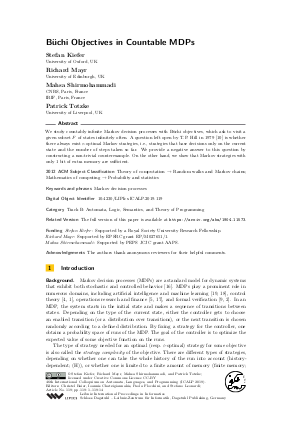LIPIcs.ICALP.2019.119.pdf
- Filesize: 0.53 MB
- 14 pages

 Creative Commons Attribution 3.0 Unported license
Creative Commons Attribution 3.0 Unported license



















Feedback for Dagstuhl Publishing